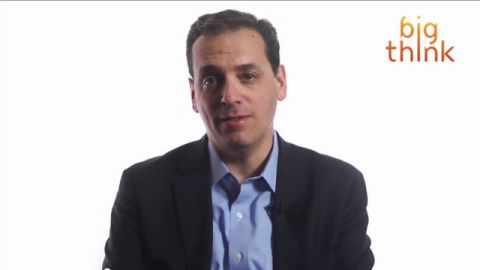Want to Lead? Learn to Ask the Right Questions

Have you ever walked away from a sales meeting wondering what you could have said differently to a potential client? Or do you feel as though you’re only wasting your breath trying to convince your employees to believe in a new initiative or direction? Are you tired of telling your children to clean up their rooms? Convincing others can’t come from you—it has to come from them. How does this happen? Learn to ask the right questions.
Daniel Pink is a management expert and the author of five bestselling business books, including Drive. He stopped by Big Think‘s studio to talk about his latest book To Sell is Human: The Surprising Truth About Moving Others.
“The key here is that we tend to think that persuasion or motivation is something that one person does to another,” says Pink. “What the social science tells us very clearly is that it’s really something that people do for themselves. And your job as a persuader, as a motivator, is to reset the context and surface people’s own reasons for doing something. Because it works a lot better.”
How does one do that? Pink gives the following hypothetical example: If your child’s room is a pigsty, ask him two questions that will get to the bottom of how to change his behavior. The first question: “From 1 to 10, how ready are you to clean your room?” If the answer is low, like a 2, then ask the counter-intuitive follow-up question:“Why a 2? Why not a 1?” The child will then start to articulate his own reasons for why he’s not that messy, essentially giving reasons for doing something. But if the answer is indeed a 1, then there may be external factors that the child needs help with.
“When people have their own reasons for doing something – not yours,” Pink says, “they believe those reasons more deeply and adhere to the behavior more strongly.”
For more on Pink’s insights into how to motivate others into action, watch the clip from Big Think’s interview:





